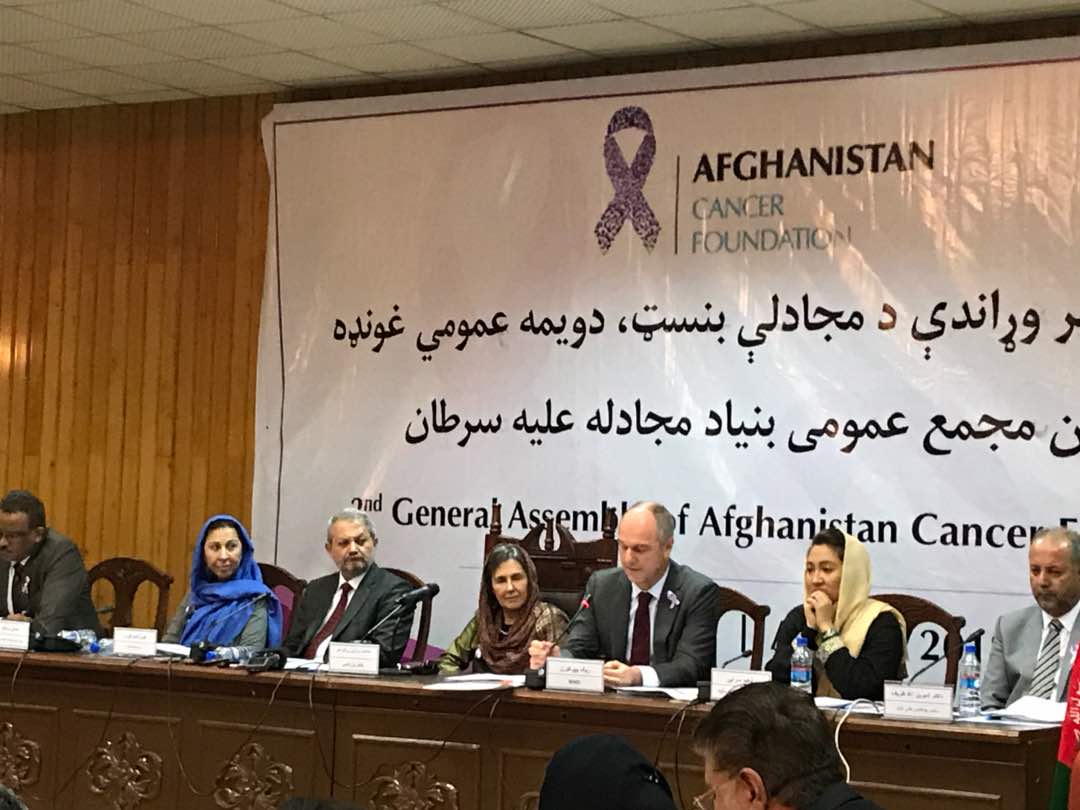The foundation was set up in 2016 to support the Afghan health sector in addressing cancer prevention, treatment and care and works on advocacy and public awareness, supports research and government policy and plans and supports resource mobilization for cancer treatment, care and research. The ACF also supports patients’ access to cancer care financially and provides health care facilities with equipment for cancer care.
Speaking at the event, Dr Richard Peeperkorn, WHO representative in Afghanistan reminded the participants that the need for effective cancer care and prevention was urgent: “Cancer is one of the leading causes of morbidity and mortality worldwide, contributing to nearly 1 in 6 deaths. In Afghanistan, according to WHO estimates from 2016, cancer accounted for 6% of deaths from all non-communicable diseases.
He further noted that cancer also effected low and middle income countries disproportionately, as they accounted for 70% of cancer deaths. He commended the efforts of the Afghanistan Cancer Foundation as an association, who “can play a very important role by creating an enabling environment for the Health Sector to address cancer prevention, treatment and care”
Dr Peeperkorn further noted that prevention was the most cost-effective public health strategy in cancer control, but that is was not enough alone. “Millions of people globally will still develop cancer because not all cancers are preventable and existing prevention strategies do not reach entire populations. Detecting cancer at its early stages enables treatment generally more effective, less complex and less expensive. Palliative and supportive care is also essential in comprehensive cancer control, and providing access to pain relief is an international legal obligation.”
In 2018, WHO Afghanistan is collaborating with National Cancer Control Programme of the Afghan Ministry of Public Health and International Atomic Energy Agency to conduct a mission of international cancer experts in Afghanistan in May. Main objectives of the mission are to assess the national cancer control capacities, needs on effective implementation of radiation medicine programme, national regulatory infrastructure for radiation safety, identify priority interventions for cancer control and support cancer strategy formulation based on the local situation and priority interventions for cancer prevention and control.
For more information, contact:
Dr Supriya Warusavithana
WHO Afghanistan Programme Manager, Non-Communicable Diseases
Phone: 0782 200 350
email:









